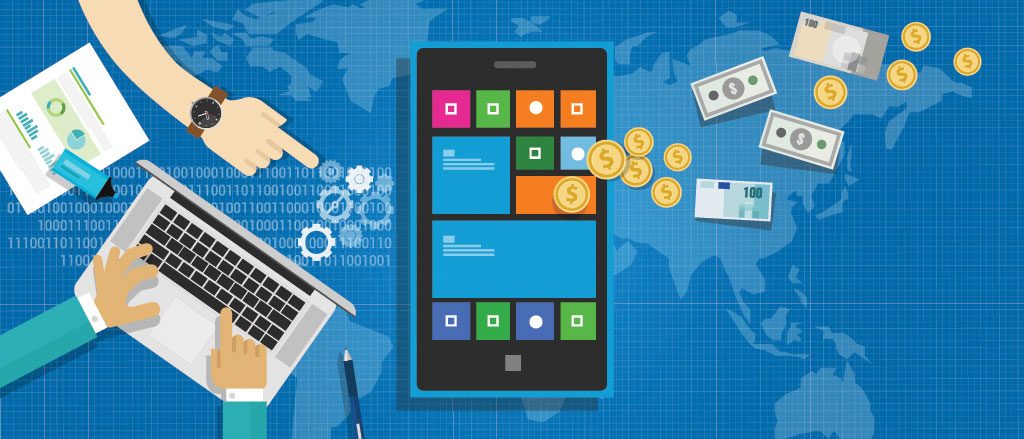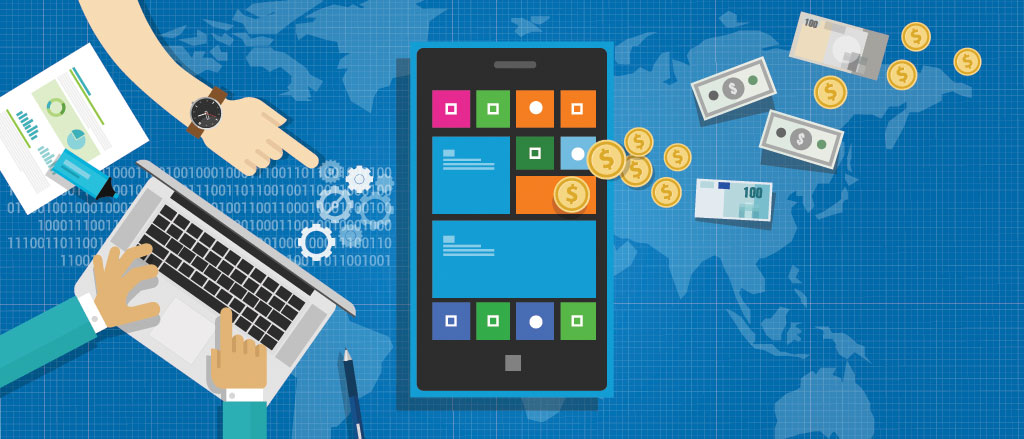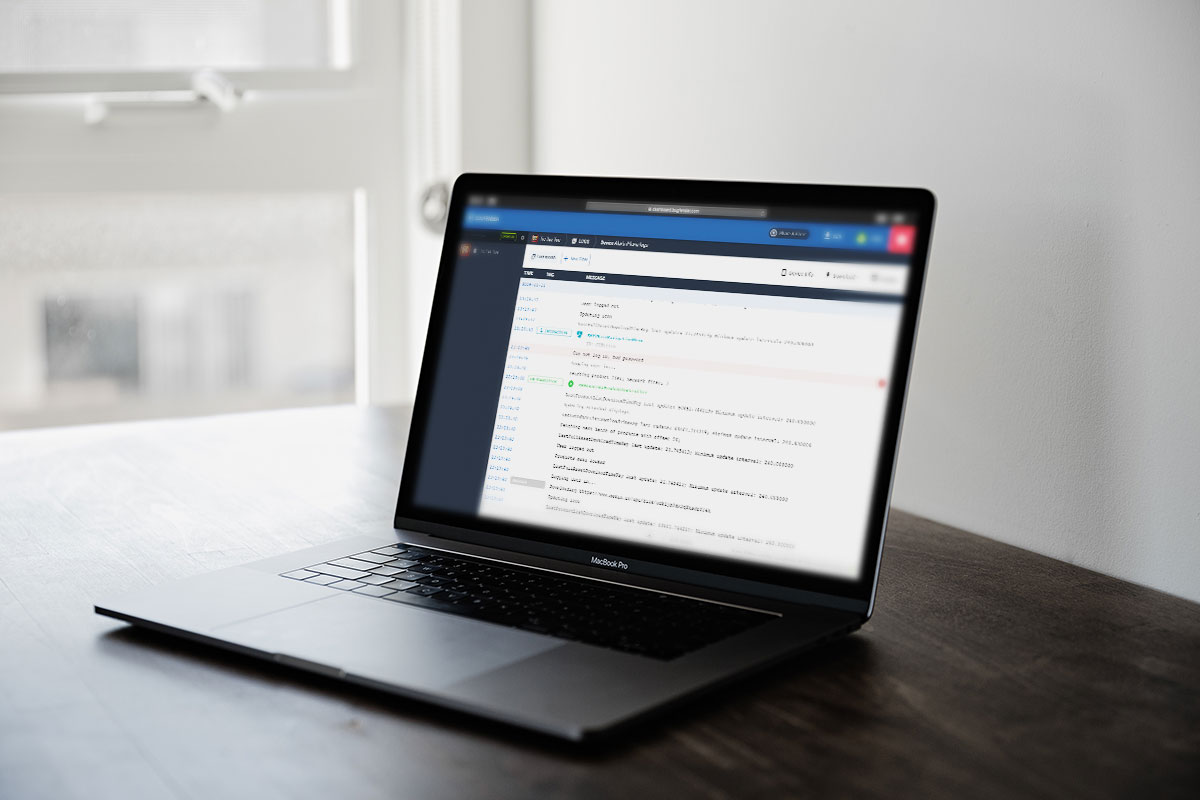
7 Minutes
Understand the Differences Between iOS and Android Development
Fix Bugs Faster! Log Collection Made Easy
Android and iOS has almost 90% of the market share in USA. More and more developers are joining the force each day that ultimately results in thousands of amazing apps. However, both of these platforms have very different ecosystem and architecture. Sometimes because of different reasons, developers have to choose either one of them for their app development or sometimes they have to prioritize one over the other.
This is quite a hard decision which is almost impossible to make without having firm grasp over the differences between both architectures and platforms. Let’s see some differences between iOS and Android app development every programmer should know.
Demographics

One of the biggest and, unfortunately, most underrated differences between iOS and Android app development and ecosystem is their demographics. Android has overall a younger customer base in USA market but as compared to iOS, Android’s demographic is a little older. 16% of Android users belong to 18-24 age-group as compared to 19% of the iOS users. This might not be an influential factor but the demographic difference between Android and iOS users in terms of average household income could be a decisive factor.
24% of the Android users have $100,000 income as compared to 41% of the iOS users with the same income category. Of course, iOS devices like iPhone and iPad sell at a significantly higher price than average Android device, and this household income should not be a big surprise. However, it also means iOS developers get a much richer target audience than their Android counterparts.
Development
Android and iOS have quite distinctive development process, tools, market, audience and even devices. Both of these platform and their ecosystems have their own unique characteristics, advantages and disadvantages. Although Android holds a larger market share globally that means Android developers have a larger audience but on the other hand iOS offers a much more attractive target audience and iOS is also known for its brand loyalty.
The brand loyalty associated with iOS devices is advantageous for iOS developers as the market share of iOS would expand over the next couple of years. Before making the final decision, developers must study these platforms, their development tools and user engagement to understand the differences. These understandings would help developers accomplish their business objectives without falling into a pit.
[random-ad]
Media Engagement Diversity
When it comes to different content and media categories, developers could see a challenge here. Not only both of these platforms have different types of users but they also use their devices differently. Contrary to popular belief, iOS users engage with all types of contents and media more than Android users do. iOS users use social media on their devices more than Android users, they use more apps to access news and they use their devices for online shopping more than their Android counterparts.
Seems kind of easy decision? No, because Android users may be less attractive to all types of media categories but they are significantly higher in number as compared to iOS users. Now, that’s the challenging decision developers have to make. In other words, Android has more media users and iOS users engage more frequently. The nature of the app could be a decisive factor here; how the developer has decided to make money from his app is an important point that could help choosing the target audience.
U ser Satisfaction
ser Satisfaction
User satisfaction is also an important factor that developers and marketers should consider because it helps predict the future of that platform. Interestingly, when it comes to user satisfaction, Android and iOS have a much bigger difference than you can anticipate. More than 60% of the current iOS users are satisfied with their device and its performance. More than 80% of the iOS users previously owned another iOS device. It means they were satisfied with their previous iOS device and upgraded it.
On the other hand, less than 50% of the current Android users are satisfied with their device. Apple has a huge branding advantage over Android because it makes its own hardware and software. The basic version of Android is managed and run by Google but manufactures like Samsung, LG and HTC load their devices with their own versions of Android. Not to mention Android devices come from different manufactures. That’s why Apple has a better user satisfaction rate, better brand loyalty and better marketing strategies.
M-Commerce
M-Commerce that refers to mobile shopping is a relatively newer concept but it has changed the concept of mobile apps and the monetizing strategies. iOS is the winner in this sense too; more than 23% of iOS users do online shopping on their devices as compared to 17% of Android users. Additionally, iOS users tend to buy paid apps and games more than Android users.
Considering three most popular monetizing strategies which are paid apps, ads and IAPs, iOS has a clear advantage in at least two of these strategies. On the other hand, because of a much larger audience, Android may give developers and marketers the advantage when it comes to ads based revenue.
Programming Languages

Let’s talk about technical differences between both platform and their app development; iOS uses Objective-C which is an old and hard to learn language because of its complex syntaxis. On the other than, Android uses Java which is considered one of the easiest languages ever designed.
Lately, Apple has introduced Swift, which brings functional programming to the iOS developers and might change the way they develop. However, Swift is a relatively new programming language and there are a lot of changes from version to version, so it might not be the best to use for advance app development at this moment.
Development Tools
Earlier, Android developers were using Eclipse that was a customized Android development tool. Now Eclipse has been replaced by Android Studio which is a much better, more powerful and specialized in Android development. iOS developers have been using Xcode which is only available for Mac based computers and laptops. Android Studio and Xcode, both tools are available for free and there is not much difference here but Xcode still has a small advantage over Android Studio.
However, the thing that makes a difference is the app deployment code. iOS developers can use Xcode for free as long as they want but they need to pay Apple $100 a year if they want to distribute their apps on iTunes or even want to test them on iOS devices.

Development Cost
Android apps are more expensive to develop than iOS apps mainly because of the following reasons:
- Usually you need more code on Java than Objective-C.
- Android has thousands of different devices that means more resources are needed for testing.
- Android emulator and compiler are slower than Xcode and iOS simulator.
- Complex layouts and animations are harder to code in Android.
Unlike Android, Apple has a review process, when developers want to publish an app they need to send it to Apple for review that takes around 7 days and in some cases even more. On Android, any new publication can be done easily and without any review process. Of course, Apple has a reason for that but from a developer point of view, it is easy to publish an Android app than an iOS app.
Bottom Line
Both of the platforms and their development ecosystems have structural differences as well as their own advantages and disadvantages. Tools like Bugfender can help developers create better and more stable app by allowing them to look into individual device’s log files remotely for debugging purposes.
Other articles you might be interested in:
Expect The Unexpected!
Debug Faster With Bugfender



